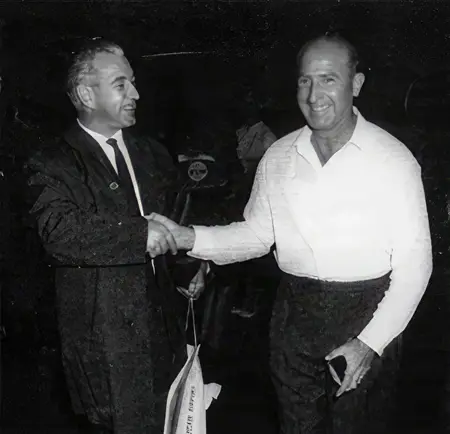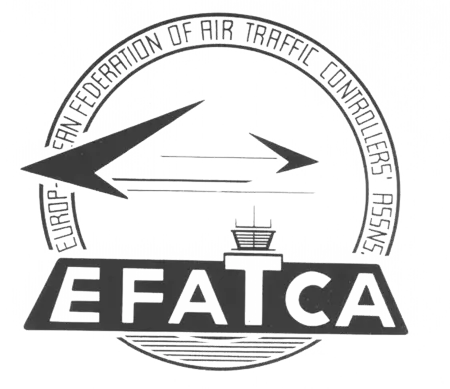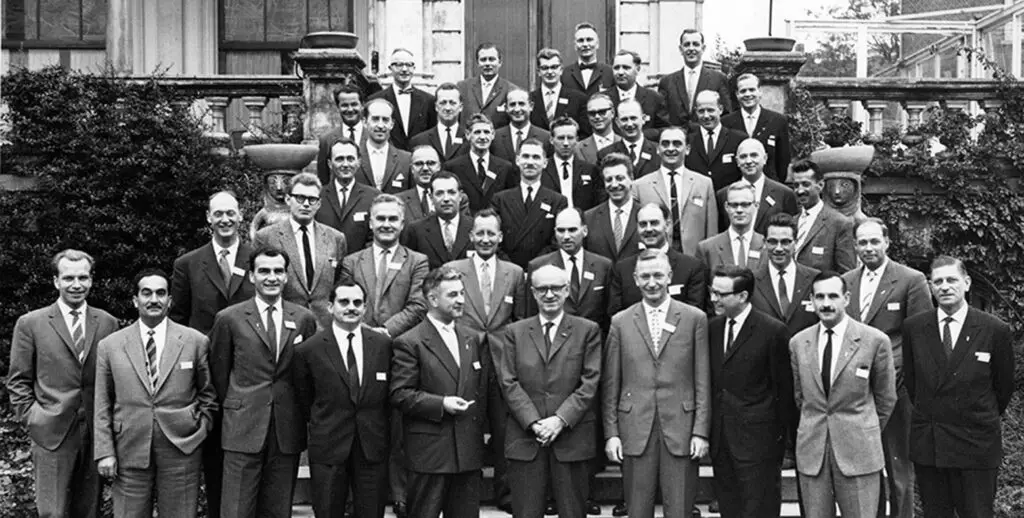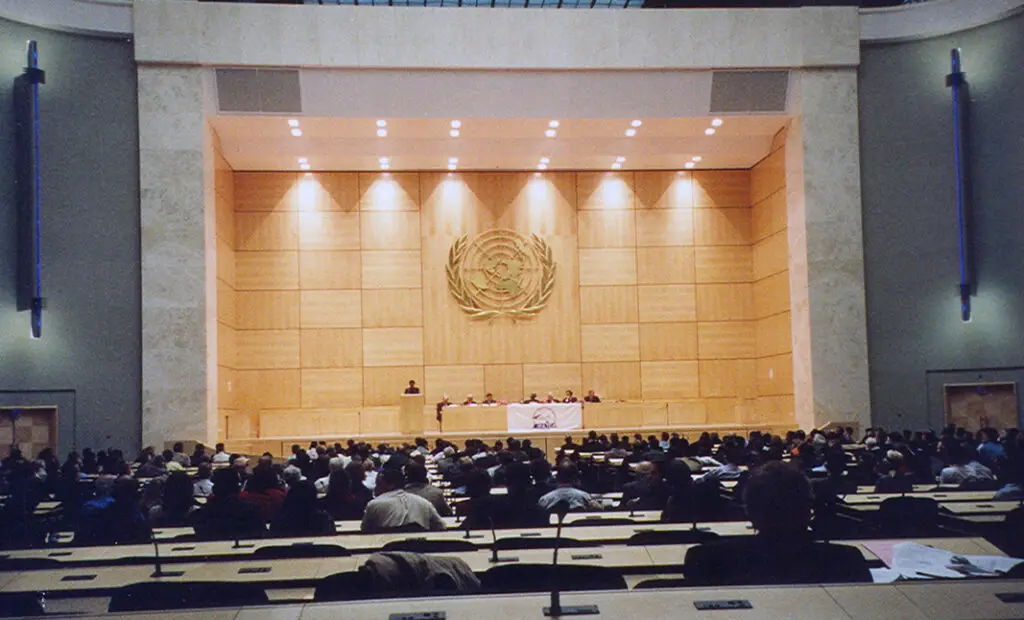The History of IFATCA
The idea of a world body for controllers was first proposed in 1956 by Jacob Wachtel, founder and first chairman of the Israel ATC Association. It was eventually the German association and its president Hans Thau that, on the suggestion of their Swiss colleagues, organised a first meeting in November 1959. Nearly 40 delegates from fourteen countries gathered in Frankfurt, Germany, to engage in discussions and coordinate their approaches to the problems. After various preparatory meetings, a constitutional meeting was held in October 1961 in Amsterdam, the Netherlands. Initially, 12 European ATC Associations intended to form a pan-European body (EFATCA) but were made aware of a wider interest, decided during the meeting to replace European with International, probably also inspired by the pilot federation, IFALPA, that had been established a few years earlier. Thus, IFATCA was founded on 20 October 1961.



Many national administrations feared that the organisation would act as an international union, and reactions were not all that encouraging. However, IFATCA’s executive officers were determined to dispel these fears and worked tirelessly to establish their reputation as a technical and professional organisation. In 1963, just two years after its formation, IFATCA received its first invitation from ICAO. IFATCA attended the RAC/OPS Divisional Meeting as an observer. Despite having little time to prepare, IFATCA submitted six extensive working papers. ICAO accepted the IFATCA positions outlined in the various papers, including proposals on the table of hemispherical cruising levels and air traffic controllers’ terrain clearance responsibilities.
Such wide acceptance was an exceptional achievement for such a young organisation and was reflective of the high-quality input from the individual professionals. Subsequently, IFATCA was asked to assist in the preparation of proposals for the introduction of primary control procedures. When ICAO released its draft procedures mid-1964, substantive contributions had been made by only five States (France, Germany, Spain, the UK and the USA) and one international organisation – IFATCA. The Federation’s contribution to the final draft in 1966 formed the basis for the standards and procedures in use to this day. And it also established the reputation of IFATCA as a truly professional and reliable partner.
Whilst making these great strides in the technical area, IFATCA also began exploring Human Factors and created its Human and Environmental Factors in ATC Standing Committee in 1964, which later evolved into the present-day Professional and legal committee or PLC. Again, it created some nervousness as some feared it might infringe on areas that IFATCA’s charter forbade, namely, industrial matters. History has shown that these fears were unwarranted.
In 1973, there were two serious back-to-back industrial disputes in France and Germany that affected two of IFATCA’s largest member associations. The French strike saw the lock out of controllers, dismissals of union leaders and the deployment of military controllers, until a mid-air collision claimed the lives of 68 people on board one of the aircraft. In Germany, a go-slow action caused havoc and, despite IFATCA mediation and achieving a measure of success with the Bonn government, the German controllers’ association was heavily fined.
Throughout the 1970s, there were many other challenges for the Federation: hijacks were a new form of terrorism and four controllers were executed, falsely accused of assisting Israeli commandos that freed the hostages at Entebbe airport; the Turkish invasion of Cyprus in 1974; the bi-lingual dispute in Canada; and the mid-air collision over Zagreb, Yugoslavia in 1976.
In August 1981, the dismissal of more than 11,000 controllers by the Reagan administration in the USA sent deep shocks throughout the ATC world. IFATCA tried to mediate but could not convince the US government to reconsider its decision.
In Europe, IFATCA continuously strived for harmonised equipment and for controller participation in system procurement and development. More often than not, these pleas were ignored. In the mid-1980s, Europe came to the ‘sudden’ realisation that its 54 ATC centres in 30 countries used 22 different computer operating systems and more than 30 different programming languages, a situation that continues today (even if some progress has been made in interoperability). Two areas where IFATCA’s contributions were more successful were Air Traffic Flow Management and Human Factors. On Air Traffic Flow Management, the Federation’s input was partially accommodated, while the HF principles were accepted in totality. IFATCA’s recognition as the responsible voice of air traffic control was then further boosted when it gained observer status to the ICAO European Air Navigation Planning Group and attendance at an ECAC meeting from which the European ATC Harmonisation and Integration Programme (EATCHIP) was born. IFATCA called for automation to support and assist the controller rather than to replace them.
In the Asia Pacific region, IFATCA participated in the Informal South Pacific ATS Coordinating Group, which developed reduced separation standards across the Pacific Ocean crossing. It was an extremely dynamic group vigorously pursuing change and often leaving the ICAO Bangkok office “breathless”. The mid ‘90s also saw IFATCA participate in the South China Sea Working Group which introduced a new and much more efficient route structure, a new RNP operations manual and amendments to ICAO.
In 1983, ICAO established the Future Air Navigation System (FANS). Its initial work concluded that “satellite-based communication, navigation and surveillance systems will be the key to improvements of the air navigation environment on a global scale.” FANS was the first ICAO group to grant IFATCA full participation, as opposed to just being an observer.
When FANS II completed its work in 1993, IFATCA also participated to the higher-level CNS/ATM Systems Implementation Task Force. IFATCA’s input was well appreciated, leading at least one State to suggest that the Federation should take the lead in the discussions. It allowed the Federation to voice their concerns on the impact that a more automated system would have on the controllers and to stress the importance of human factors in the discussions.
During the 1990s, IFATCA managed to develop guidelines on airborne collision avoidance systems for its members, and pitched these continuously at various forums. Unfortunately, the absence of binding universal procedures contributed to the Überlingen collision in 2002. IFATCA was involved both in helping the controllers and by again highlighting the lack of coherent procedures that was a significant contributing factor in the collision. Four years later, IFATCA provided assistance in the aftermath of another collision, overhead the Amazon jungle in Brazil. An IFATCA team helped to provide Critical Incident Stress Management (CISM) to their Brazilian colleagues.
In 2001, IFATCA celebrated its 40th anniversary and, at its annual conference in Geneva, it was announced that the Federation had been granted official Observer status to ICAO. Unfortunately, the events of 9/11 that same year changed aviation, and air traffic control, forever. In between various crises, traffic boomed in many regions of the world, raising concerns that the infrastructure and working conditions for controllers were generally falling behind. Global warming and environmental aspects also came to the foreground, adding to airspace users’ financial priorities. On the technical side, the emergence of new surveillance systems and unmanned aerial vehicles also present new challenges that the Federation has to tackle.

For its 50th birthday in 2011, IFATCA coined the slogan “One Sky, One Voice”. IFATCA began providing more direct assistance to its members associations, including providing training courses on safety, Just Culture and Critical Incident Stress Management. IFATCA also established a team of trained volunteers to act as expert advisors for prosecutors.
The need for an internationally recognised body to voice the professional concerns of controllers is stronger than ever. The COVID-19 crisis resulted in many Air Navigation Service Providers losing revenue and imposing drastic changes to the working conditions and/or salaries of their controllers. IFATCA was instrumental in helping by providing direct support to Member Associations seeking guidance on how to cope with this unprecedented crisis.
2022 saw a fully-fledged war being fought in Ukraine, which also led to IFATCA European associations organising a support fund to help families of the controllers who were leaving the war areas and who became refugees.

UNDER CONTROL - The story of IFATCA's First 40 years
A detailed account of IFATCA's first 40 years can be found in Neil Vidler's book Under Control.



